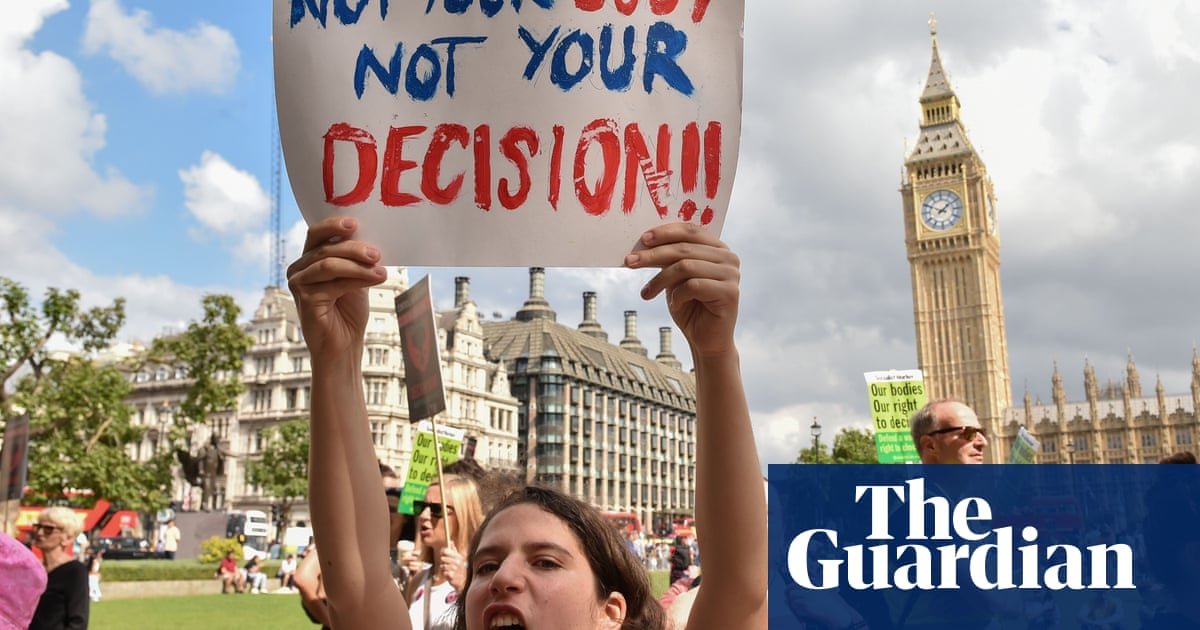An amendment proposing to decriminalise abortion has been tabled in parliament, backed by a group of more than 50 cross-party MPs.
Put forward by the MP Tonia Antoniazzi, it is supported by several of herLabourcolleagues including John McDonnell, Nadia Whittome, Jess Asato and Antonia Bance.
It has the backing of Liberal Democrats including Christine Jardine, Wera Hobhouse and Daisy Cooper, as well as the Green party’s Siân Berry and Carla Denyer, Sorcha Eastwood from the Alliance party, and Liz Saville-Roberts and Llinos Medifrom Plaid Cymru. Conservative MP Caroline Dineage also added her name to the amendment, as well as Claire Hanna from the SDLP.
Antoniazzi’s amendment seeks to remove “women from the criminal law related to abortion”, and would mean “no offence is committed by a woman acting in relation to her own pregnancy”.
It would mean women would no longer be criminalised under the Offences Against the Person Act 1861, the piece of Victorian legislation that most recent abortion cases have been prosecuted under.
Nor would they be criminalised under the Infant Life (Preservation) Act 1929, which carries the offence of “child destruction”.
The amendment, to the government’s crime and policing bill, follows on from one the Labour MP Diana Johnson, now a Home Office minister, had attempted to put forward to the last Conservative government’s criminal justice bill, but which was never voted on as the legislation fell because a general election was called.
Antoniazzi said she had put forward the amendment because a change in the law “is necessary”.
“We’ve seen a sharp rise in the number of women and girls facing criminal investigations following pregnancy loss and abortion,” she said. “It’s just wrong to put women in this situation, to put them into the criminal justice system, because this is not a criminal law issue, this is essentially a healthcare matter.”
She added: “I find it unbelievable that in the last five years, around 100 women have been investigated by the police. It’s just wrong. It’s a waste of taxpayers’ money, it’s a waste of the judiciary’s time, and it’s not in the public interest. Therefore, the law has to change.”
The most recent woman to be prosecuted, Nicola Packer, 45, spent almost five years waiting for her case to come to court, before beingunanimously cleared by a jury at Isleworth crown court last week. Antoniazzi attended court for a day of the trial with her colleague Tracy Gilbert MP to support Packer.
“I think it is, it is utterly, utterly disgraceful that she was put in this position, and shame on those people that brought this case forward,” Antoniazzi said.
The amendment, which if passed could become law as early as this summer, mirrors Johnson’s previous amendment, Antoniazzi said, and “doesn’t change anything about the provision of abortion services”.
Rather than seeking to create a new framework, it retains the existing abortion law, she said: “There’s no change to time limits, and also how women access care, the need for two doctor signatures.”
A change to the law is being supported by professional bodies including the British Medical Association, the Royal College of Obstetricians and Gynaecologists, the Royal College of Midwives, the Royal College of Nursing, and the Royal College of General Practitioners.
“This is a simple amendment that looks after women, which is our principal aim here, to make sure that they are not criminalised for something that is not in the public interest,” Antoniazzi said.
“It’s in their interest that we make sure that these women get the right support, the right help, and are not reported to the police for a pregnancy loss, a miscarriage, or a situation that they find themselves in that has become impossible,” she added.
“These women are vulnerable. They need our help, and they don’t deserve to have their lives ruined.”
